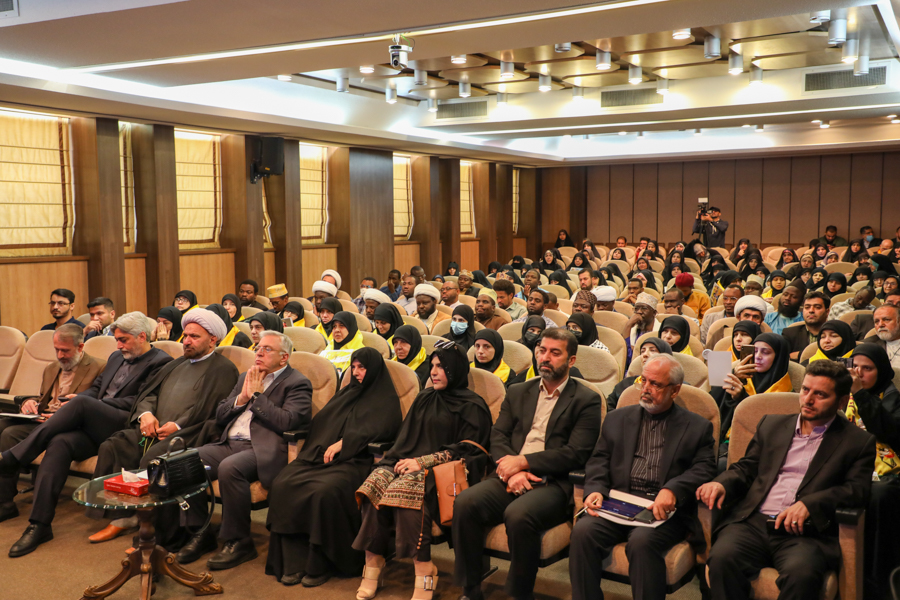
The international conference titled "The Quran, Science, and Identity Challenges" was held on Saturday, May 17, 2025, to commemorate the first anniversary of the martyrdom of the President. The event was attended by Dr. Aghamiri, President of the University; Dr. Alamolhoda, Head of the Research Institute for Fundamental Studies of Science and Technology; Dr. Niknam, Deputy Minister of Health for Quran; Dr. Yasra Allah, Deputy Prime Minister of Iraq for Women’s Affairs; Dr. Donya Al-Shammari, Chairwoman of the Women and Children’s Committee of the Iraqi Parliament; Ms. Zainab Nasrallah; families of Lebanese resistance martyrs; scholars from Iran and abroad; and guests from Al-Mustafa International University as well as from Iraq and Pakistan.
Contemporary Iran Possesses a Rich Body of Literature on the Relationship Between the Quran and Science
Dr. Mahmoudreza Aghamiri, President of Shahid Beheshti University, highlighted Iran's intellectual and religious heritage in the field of interdisciplinary studies, stating: “The intellectual landscape of contemporary Iran has developed a rich and diverse body of literature on the relationship between the Quran and science. Today, a significant number of experts in both the humanities and empirical sciences are actively engaged in this field.”
He also pointed to the role of the 13th administration in strengthening this academic movement, adding: “Due to the special attention given by the late President, Ayatollah Dr. Seyyed Ebrahim Raisi, to Quranic concepts, substantial support was provided for research at the intersection of the Quran and science. One of the most prominent examples of this support was the successful organization of two editions of the International Conference on Science and the Quran.”
All Capacities Can Be Dedicated to the Greater Cause of the Quranic Revival Movement
Dr. Alamolhoda, Head of the Research Institute for Fundamental Studies of Science and Technology, spoke about what she referred to as the “identity challenges of science.” She stated: “Identity challenges are usually discussed in relation to children, adolescents, and to some extent, women. However, upon deeper reflection, these challenges primarily concern institutions—especially the institution of science—and are in fact directed at scientists themselves.”
Referring to the ideological power of the dominant world order, she said: “In the past, science was not at the service of power and the economy. Those familiar with the dialectics of power understand that the signifier of power has only two poles, and it is the dialectic between these two poles that structures society.”
She continued: “These two poles are imposition and submission—one side imposes, and the other submits. The agent that facilitates this dynamic is ideological power, which can provide justification for both sides.”
Dr. Alamolhoda added: “The Quran—especially through its narratives—critiques the mechanisms that produce, establish, or reinforce belief, which are in fact ideological powers used to justify dominance.”
She concluded by saying: “Those familiar with the challenges of science and the flow of modernity understand how industrial economies, through systems of knowledge production such as liberalism and Marxism, have advanced everything in favor of capitalist dominance.”
She emphasized that the primary audience addressed by the Holy Quran are people of thought and reflection, stating: “The Quran calls upon them to raise awareness among the people and to stand against the ideological apparatuses of power.”
Dr. Alamolhoda linked the second phase of the Islamic Revolution initiated by Imam Khomeini (may his soul rest in peace), particularly through the Cultural Revolution in universities, to this Quranic vision. She added: “During the leadership of the Supreme Leader, this issue has been repeatedly pursued through officially communicated policies. This heavy and highly sensitive project was first launched at the University of Tehran, later expanded to Ferdowsi University, and today, further steps are being taken at Shahid Beheshti University.”
On the occasion of the anniversary of the martyrdom of the President—who had a deep concern for the identity-related challenges of science and family—she called on committed scientists and university administrators to join the movement for a return to the Holy Quran. She urged them to contribute to the effort of decolonizing and liberating science from exploitation, by conducting research that validates scientific legitimacy and promotes technologies that genuinely serve humanity rather than the global systems of domination. “Indeed,” she emphasized, “all capacities can be devoted to the greater cause of the Quranic revival movement and draw strength from it.”
The Role of Women in the Quran: Revisiting Concepts and the Need for Interpretation Reform
Dr. Yasra Allah, Deputy Prime Minister of Iraq for Women’s Affairs and one of the keynote speakers at the conference, emphasized the role of women in the Quran. She stated: “The Quran places strong emphasis on the role of women and defines this role based on philosophical and intellectual foundations. Therefore, it is crucial to pay attention to misinterpretations of Quranic concepts, and there is a pressing need to revisit and correct them.”
She highlighted that Islamic history is filled with influential women who have changed the course of events, adding: “There are two opposing ideological perspectives regarding women—one that defines women entirely outside the framework of the family, and another that opposes their presence in society. Both of these viewpoints must be critically examined.”
Dr. Yasra Allah considered the Islamic perspective to be the most comprehensive, stating: “This viewpoint addresses all aspects of women’s personality and needs—both within society and the family. Figures such as Mary (mother of Jesus) and Asiya are Quranic examples of influential women who played vital roles in history and, at critical moments, redirected its course.”
Women’s Impact in Today’s Society Requires Familiarity with Quranic Concepts
Dr. Donya Al-Shammari, Chairwoman of the Women and Children’s Committee in the Iraqi Parliament, offered her condolences on the anniversary of the martyrdom of President Raisi and other martyrs of service, saying: “They were on the path of serving the people, and in truth, martyrdom chose them. According to the Quran, martyrs are alive and present among us.”
Emphasizing the status of women in Islam, she said: “At a time when women were being buried alive, Islam gave them dignity and identity. In the Holy Quran, women are not marginal figures—they are central to education and moral upbringing. The chapters of An-Nisa (Women) and Maryam highlight influential women in the history of humanity.”
Dr. Al-Shammari stressed that for women to play a meaningful role in today’s society, they must become familiar with Quranic concepts and draw inspiration from them. “Influential women build their societies,” she said, noting that many Quranic verses emphasize the importance of education and upbringing.
Photo Report of the Conference on “The Quran, Science, and Identity Challenges”

